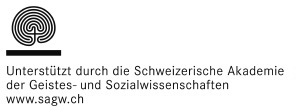Stop and Think! Exploring the Role of News Truth Discernment, Information Literacy, and Impulsivity in the Effect of Critical Thinking Recommendations on Trust in Fake Covid-19 News
DOI:
https://doi.org/10.47368/ejhc.2022.203Keywords:
fake news, trust, news truth discernment, critical thinking recommendations, information literacyAbstract
Covid-19-related fake news widely circulates on social media. This is problematic as people commonly do not process information on social media in a very critical manner. Also, when people encounter particular online content several times this tends to increase the content’s trustworthiness, sometimes irrespective of the accuracy of the provided information. Our study aims to explore whether, how, and for whom a simple critical thinking recommendation added to a social media newsfeed can aid people to better discern true news from fake news and reduce their trust in fake news. In an online experiment, 220 participants were exposed to a Twitter newsfeed with true and fake Covid-19-related news messages, either with or without critical thinking recommendations. The findings showed that participants who were exposed to the recommendations showed less trust in fake news messages, which was mediated by an increased accuracy in news truth discernment. Results showed no significant moderating effects of information literacy and impulsivity characteristics. Overall, the findings of this study are promising as this scalable, low-cost intervention might potentially help combat the effects of fake news on social media.
Downloads
Published
How to Cite
Issue
Section
License
Copyright (c) 2022 Jasmijn Kruijt, Corine S. Meppelink, Lisa Vandeberg

This work is licensed under a Creative Commons Attribution 4.0 International License.
The authors agree to the following license and copyright agreement:
a. Authors retain copyright in their work.
b. Authors grant the European Journal of Health Communication the right of first publication online on the internet (on the publication platform HOPE of the Main Library of the University of Zurich).
c. The electronic contributions on the internet are distributed under the „Creative Commons Attribution 4.0 International“- License (CC BY 4.0). This license allows others to copy and redistribute the work in any medium or format, to remix, transform and build upon the material with an acknowledgement of the work's authorship and initial publication in the European Journal of Health Communication . These conditions are irrevocable. The full text of the license may be read under http://creativecommons.org/licenses/by/4.0/.
d. Authors are able to enter into separate, additional contractual arrangements for the non-exclusive distribution of their work, as long as the conditions of the CC BY 4.0 License are fulfilled and initial publication in the European Journal of Health Communication is acknowledged.
e. Authors grant the Editors commercial rights, using a publishing house, to produce hardcopy volumes of the journal for sale to libraries and individuals, as well as to integrate the manuscript, its title, and its abstract in databases, abstracting and indexing services, and other similar information services.
f. This agreement is subject to possible legal disclosure obligations.
g. This agreement is governed by Swiss law. Court of jurisdiction is Zürich.









